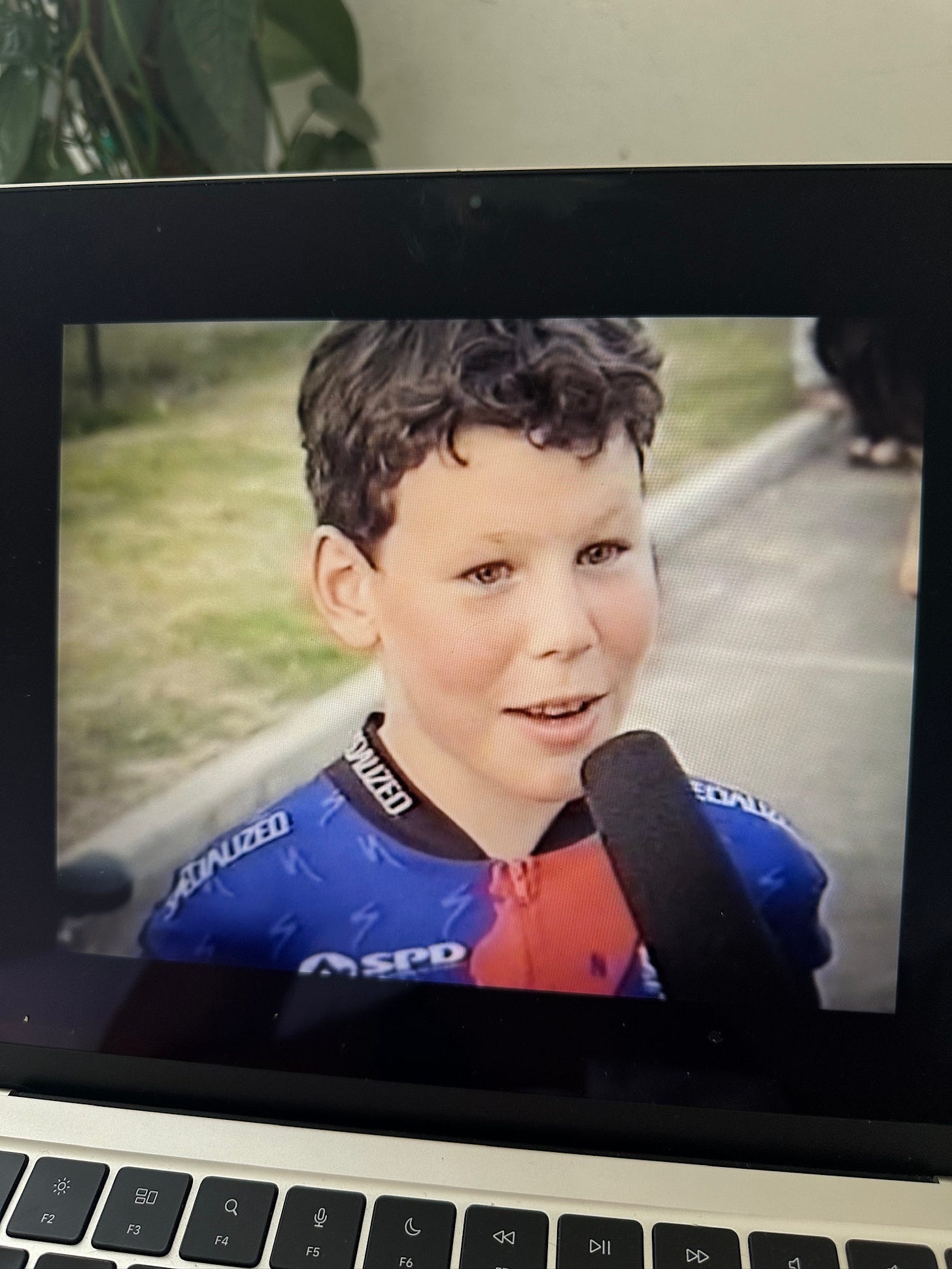Never enough
This is Western Coffee—notes on building the creative body. Last time: Training. The whole series is here. Please share this email; you can sign up free below.
God bless the algorithm that just fed me a documentary about Mark Cavendish. He is a cycling legend from the Isle of Man who matched the career record for single stage wins in the Tour de France. Remember those silly categories Netflix used to list? “Steamy ‘80s Israeli lesbian thrillers with a golden retriever sidekick,“ etc. I think this one would show up in “cycling tales for and about ill-fated obsessives.”
It was an obvious question for me as a cyclist, even just the first time I broke my thigh bone: Maybe do something else? I’d been riding for barely a year before that crash, which was barely even a crash; I could have taken it as a sign that this was not for me. Instead, I got a faster bike and doubled down—on cycling and, six months later, on femur fractures.
Cavendish is like me, just shorter. The movie opens with footage of him at a race around age 9 or 10, all his grownup incandescence over the sport already firing. “Did you win?” an interviewer says. “No, I was about that far,” he says, holding up a finger on each hand. Then comes the montage of his emergence as a phenom: his first world title, his first Tour de France stage win, one of four successive victories in the final sprint on the Champs-Élysées—all of this intercut with one exhibit after another of his astonishing charisma. He’s a gorgeous being, his face a curtainless theater of titanic emotion.
Then, an early crash signals the story of the film, which follows Cavendish’s delicious rise with the literal fall that brought him to a total halt in 2017, followed by a diagnosis of Epstein-Barr virus, followed by a long lonely season of despair, followed by a renaissance at the 2021 Tour, where he meets and nearly surpasses the stage-win record. I could watch this guy doing the dishes, but also woven into the narrative is the perspective of his wife—precise, knowing, media-trained, still raw. You get the sense that this guy would not have survived without her, or without his team’s patient psychologist, or without the Greek coach who facilitates a mystical journey of healing in the hills over Athens.
The movie is a tragedy. It doesn’t advertise this, and obscures it over long stretches of triumph; Cavendish’s mere survival through the mental-health crisis brought on by his illness feels like a reprieve. But then we see him winning again, tipping on the edge of that record, and we know how it’s going to end: His crashes have been accidents, sure, but his aggression is built-in. The risk-taking is fixed, the defiance against every reason to surrender to laureate status. When the credits roll and you look it all up on Wikipedia, there’s the real end of the story, from the Tour de France just last month: “He abandoned the race after a fall during stage 8.” Off screen, Mark has gone home, a place he has little reason to know.
Many athletes will recognize this single-mindedness, to varying degrees; and it may well be that no champion has a balanced life. The corollary to “everything is possible” is “if you don’t flinch.” It’s natural to wonder—a grappling under way across my generation—if excellence can coexist with ease. I feel two ways about this, both as a writer and as a jock: that being is more than enough justification for itself. And also that for some of us, regardless of our scope or arena, being finds its fulness at the edge.
If you enjoy Western Coffee, please make a donation on my fundraising page for the nonprofit Achilles International, which is how I’m gaining entry to the New York City Marathon this year—my first. All donations go to the nonprofit and its work with disabled athletes; I’m paying my own race fees, etc.



